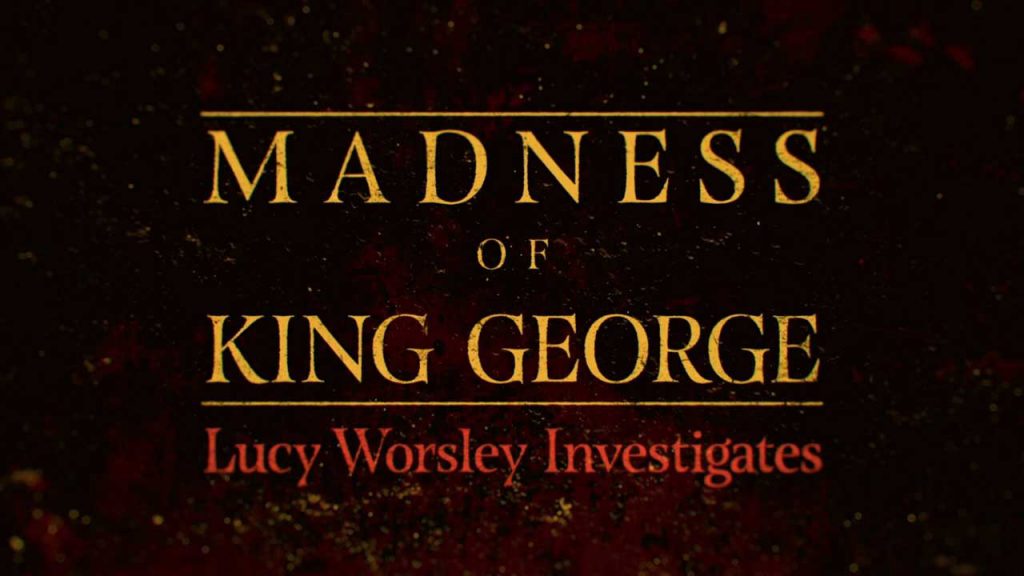Lucy Worsley Investigates – Madness of King George: How did George’s mental illness change Britain? Lucy Worsley uncovers Royal papers and explores how the attempt on his life by a mentally ill subject changed psychiatry forever.
The historian examines four dramatic chapters in British history, exploring how changing attitudes to gender politics, class inequality, mental health and children can challenge perceptions of the past and provide new answers to each myster. She begins with the 16th-century witch hunts, when thousands of ordinary people, mostly women, were hunted down, tortured and killed across Scotland and England. Lucy Worsley investigates the mysteries of some of the most infamous and brutal chapters in British history, finding new witnesses and compelling evidence. What will she uncover?
Lucy Worsley is a British historian, author, curator, and television presenter. She is Joint Chief Curator at Historic Royal Palaces but is best known as a presenter of BBC Television series on historical topics.
Lucy Worsley Investigates – Madness of King George
George III was King of Great Britain and of Ireland from 25 October 1760 until the union of the two kingdoms on 1 January 1801, after which he was King of the United Kingdom of Great Britain and Ireland until his death in 1820. He was concurrently Duke and Prince-elector of Brunswick-Lüneburg (“Hanover”) in the Holy Roman Empire before becoming King of Hanover on 12 October 1814. He was a monarch of the House of Hanover but, unlike his two predecessors, he was born in Great Britain, spoke English as his first language and never visited Hanover.
George’s life and reign, which were longer than those of any of his predecessors, were marked by a series of military conflicts involving his kingdoms, much of the rest of Europe, and places farther afield in Africa, the Americas and Asia. Early in his reign, Great Britain defeated France in the Seven Years’ War, becoming the dominant European power in North America and India. However, many of Britain’s American colonies were soon lost in the American War of Independence. Further wars against revolutionary and Napoleonic France from 1793 concluded in the defeat of Napoleon at the Battle of Waterloo in 1815. In 1807, the transatlantic slave trade was banned from the British Empire.
In the later part of his life, George had recurrent, and eventually permanent, mental illness. Although it has since been suggested that he had bipolar disorder or the blood disease porphyria, the cause of his illness remains unknown. George suffered a final relapse in 1810, and his eldest son, the Prince of Wales, became Prince Regent the following year. When George III died in 1820, the Regent succeeded him as King George IV. Historical analysis of George III’s life has gone through a “kaleidoscope of changing views” that have depended heavily on the prejudices of his biographers and the sources available to them.




